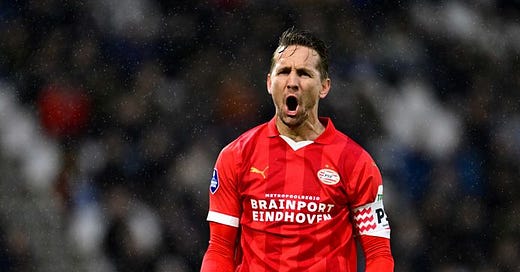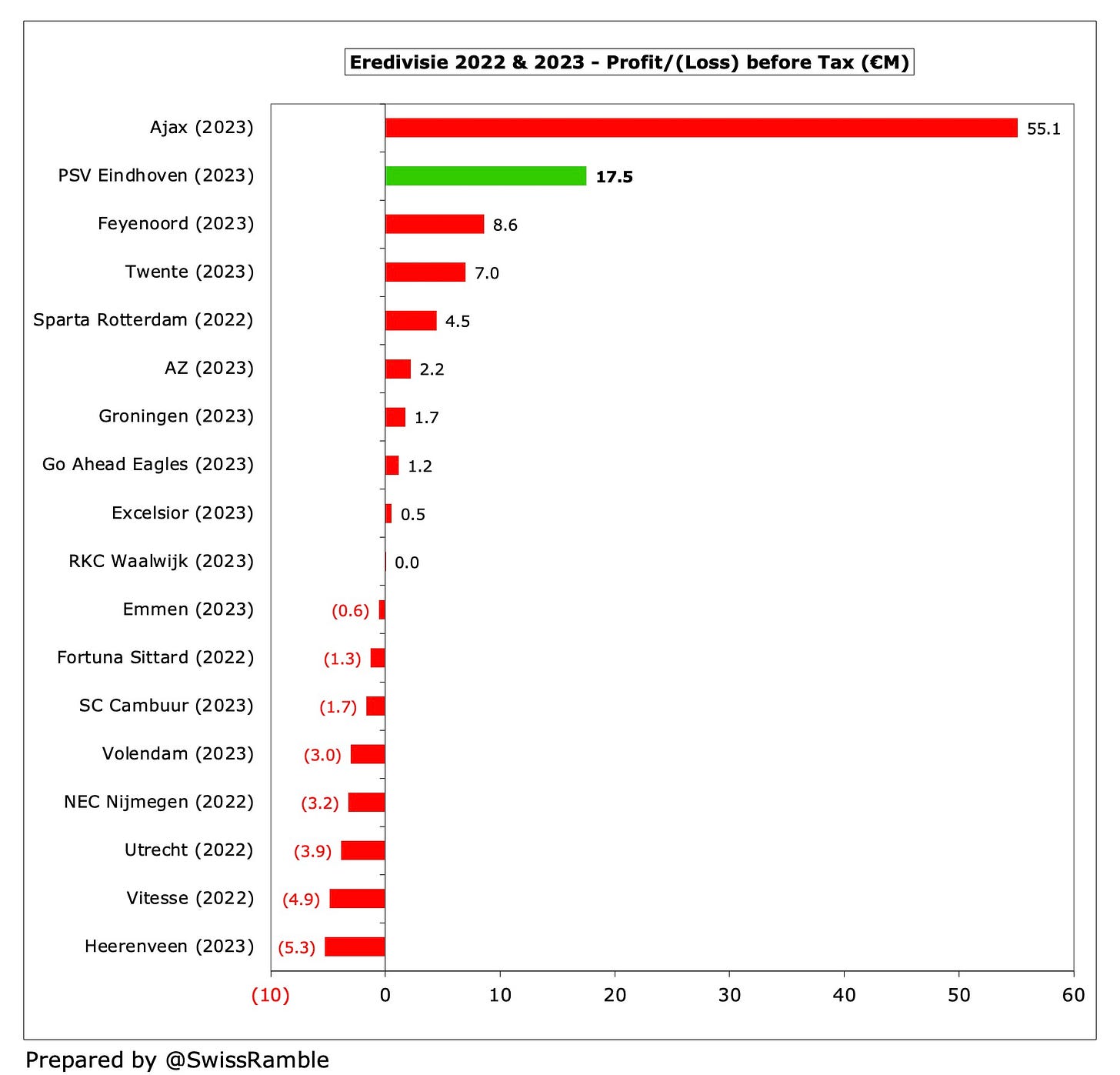PSV Eindhoven are enjoying one of the best ever starts to a season, as they have won their first 14 games in the Eredivisie to comfortably lead the table. Since last winning the title in 2018, it has been a case of “close, but no cigar” for PSV, as they have finished second in four of the last five seasons, but this season looks very promising.
The good news doesn’t stop there, as PSV also qualified for the group stage of the Champions League for the first time in five years, while last week’s results confirmed that they have now secured a place in the last 16. This was thanks to an incredible 3-2 comeback win at Sevilla after they found themselves 2-0 down with only 20 minutes to go.
2022/23 season
So I wondered what the impact would be on PSV’s finances with the logical starting point being their last available accounts from 2022/23.
That season had been a bit of a mixed bag, as they were once again runners-up in the league, though they did manage to secure two pieces of silverware, namely the KNVB Cup, after beating Ajax on penalties, and the Johan Cruyff Shield. However, there was also some disappointment, as they were eliminated in the final qualifying round of the Champions League by Rangers.
Former Manchester United striker Ruud van Nistelrooy led the club for almost all of the season before resigning with one league game remaining, citing lack of support. Old stalwart Fred Rutten took over as caretaker before handing the reins to Peter Bosz in July.
Profit/(Loss) 2022/23
PSV did very well off the pitch in 2022/23, as they managed to increase their pre-tax profit from €1.4m to €17.5m, with revenue rising €7.4m (8%) from €93.2m to a new club record of €100.6m, which was the first time they broke through the €100m barrier.
However, expenses also grew €7.9m (6%) from €134.8m to €142.7m, so the club still made an operating loss of €42.1m. This was more than offset by €61.1m profit from player sales, up from €44.2m, which produced the overall positive result.
Profit after tax climbed from €1.2m to €13.1m after a €4.4m tax charge.
PSV’s revenue growth was almost entirely driven by match day, which rose €7.0m (40%) from €17.7m to €24.7m, though there were also small increases in the other two revenue streams. Broadcasting was up €0.3m (1%) from €28.2m to €28.5m, while commercial was €0.1m higher at €47.5m.
Unlike previous seasons, the COVID pandemic had no impact on the financial results.
PSV’s wage bill rose €4.6m (8%) from €55.2m to €59.8m, but player amortisation fell €4.3m (14%) from €29.6m to €25.3m. Other expenses increased €6.9m (17%) to €48.4m, mainly due to the higher costs of staging all games with fans, while player impairment was up €0.6m to €2.6m.
Unlike many other leagues, the majority of clubs in the Eredivisie generally make money, but PSV’s €17.5m pre-tax profit was the second best result, only behind Ajax’s very high €55m. The other member of the Dutch “big three”, Feyenoord, were also in the black with €8.6m.
PSV’s 2022/23 figures greatly benefited from a hefty €61m profit from player sales, which was €17m (40%) higher than prior year’s €44m, thanks to two big money transfers to the Premier League, namely Cody Gakpo to Liverpool and Noni Madueke to Chelsea.
Keep reading with a 7-day free trial
Subscribe to The Swiss Ramble to keep reading this post and get 7 days of free access to the full post archives.







